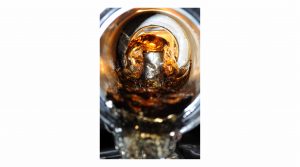70% of drinks manufacturing jobs outside Dublin

The National and regional employment in the drinks and hospitality sector in 2019 report highlights the value of drinks and hospitality sector employment to the economy and rural jobs.
Other regions are similarly affected such as Carlow, where the drinks and hospitality industry employs over 1,203 or 5.5% of total employment in the county.
The DIGI has said that because these rural areas are less economically diverse compared to Dublin and other urban regions, they’re highly vulnerable to the fallout of a no-deal Brexit downturn, “particularly the reduction in tourism numbers and a tougher export market that are likely to follow a further devaluation of sterling”.
The warning was made in a new report, National and regional employment in the drinks and hospitality sector in 2019, commissioned by DIGI and authored by DCU economist Anthony Foley, just published, which highlights the value of drinks and hospitality sector employment to the economy and rural jobs.
The report shows the immense importance of drinks and hospitality businesses to the economy.
90,000 people are directly or indirectly employed by the core drinks industry which includes pubs, breweries, distilleries, restaurants and other associated businesses.
The report found that between Quarter 1 of 2012 and Quarter 1 this year, drinks and hospitality jobs accounted for more than 12% of Ireland’s total employment increase, with most jobs in beverage and food serving.
It demonstrates that “the hospitality and wider tourism sector, of which the drinks industry is an integral component, contributes a very large share of employment.
“Ireland’s tourism employment as a share of total employment is the fourth-highest in the EU after only Greece, Cyprus and Malta,” continues the report, “In the past few years, hospitality employment has grown faster than total employment and its share of total employment has increased.
In six of the seven non-Dublin regions, growth in hospitality employment has exceeded growth in total regional employment.
Support Your Local
The report was published ahead of DIGI’s ‘Rural Development and the Drinks and Hospitality Industry’ event in Connacht Distillery, Ballina, County Mayo, tomorrow, the second in a three-part series of regional events.
Economist and author David McWilliams will address a group of local and national industry members on the importance and role of this sector in Ireland while Ivan Yates will chair an industry-led panel discussion on the issues raised.
Combined with the threat of a no-deal Brexit and Ireland having the second-highest overall alcohol excise tax in Europe (as well as a recently raised VAT rate and rising operational costs – particularly insurance premiums), many rural drinks and hospitality businesses are at real risk of laying off employees or closing completely, states the DIGI in urging the Government to reduce alcohol excise by 15% over the next two years.
“Despite the drinks and hospitality sector’s obvious contributions to national and regional employment, Ireland’s innovative economy and to local communities, the Government is not doing enough to incentivise this industry and does not seem to view the sector with enough appreciation or understanding,” said DIGI’s Chair and Director of Communications and Corporate Affairs at Irish Distillers Rosemary Garth, “This attitude will prove disastrous if the UK leaves the EU without a deal in October.
“A no-deal Brexit will have immediate consequences for Ireland’s drinks and hospitality businesses. If the sterling devalues further then it will be harder and more expensive for Ireland’s drinks businesses to export their products to the UK, which is a major market. Border controls will further delay road freight trade with mainland Europe.
“For drinks and hospitality businesses in rural Ireland, particularly the seasonal kind, reduced spend by British tourists will have a lasting, damaging effect on their ability to take on new workers or keep on existing staff. In extreme cases, a no-deal Brexit may lead to a recession-type downturn and force some businesses to close up shop.”








